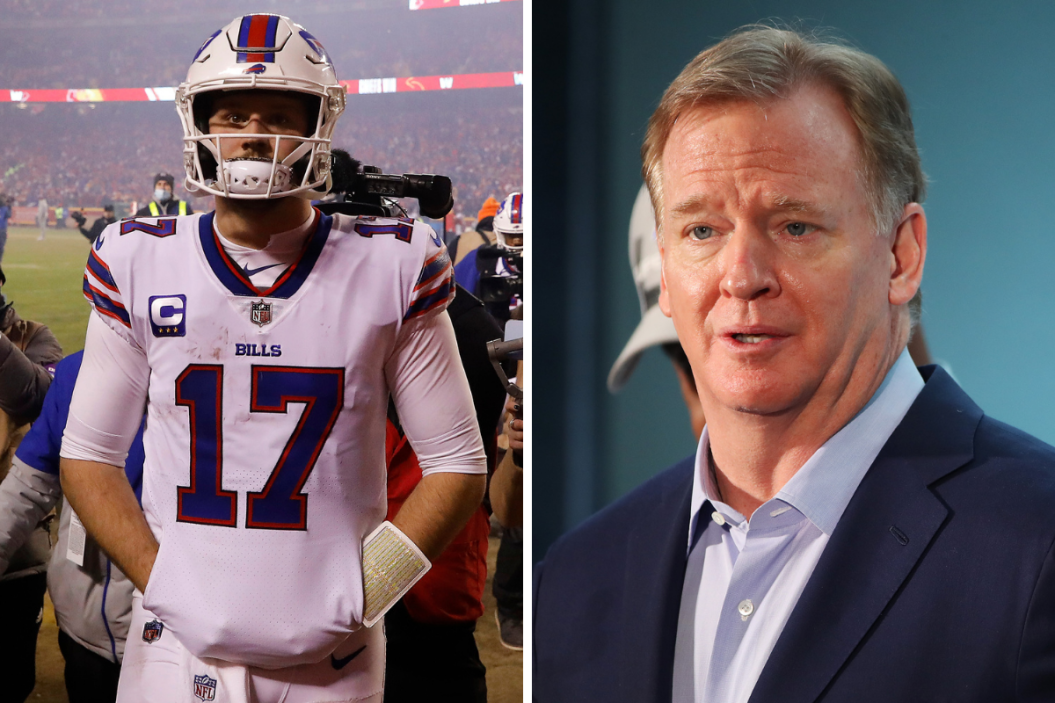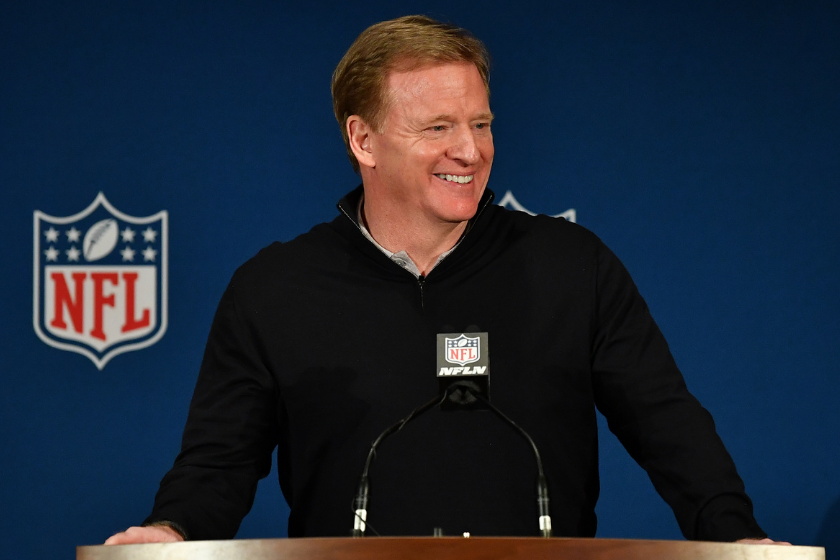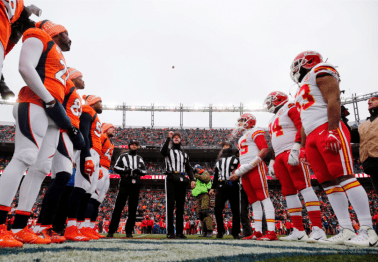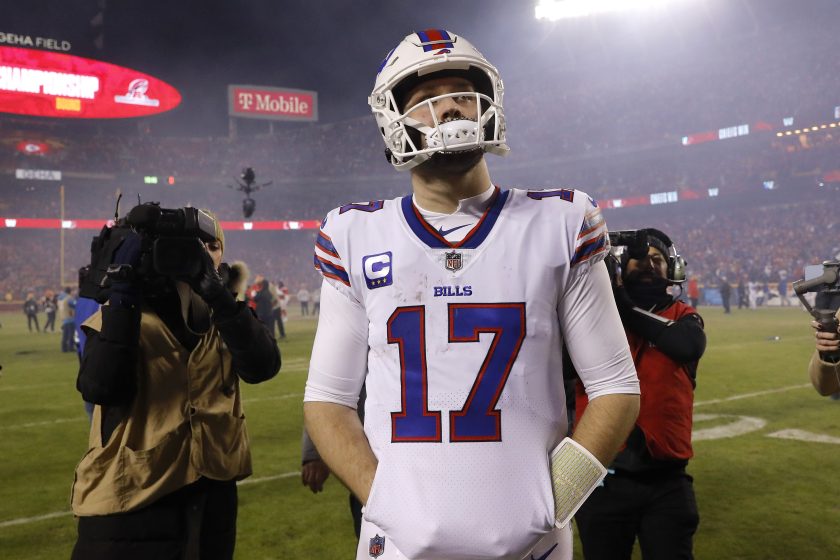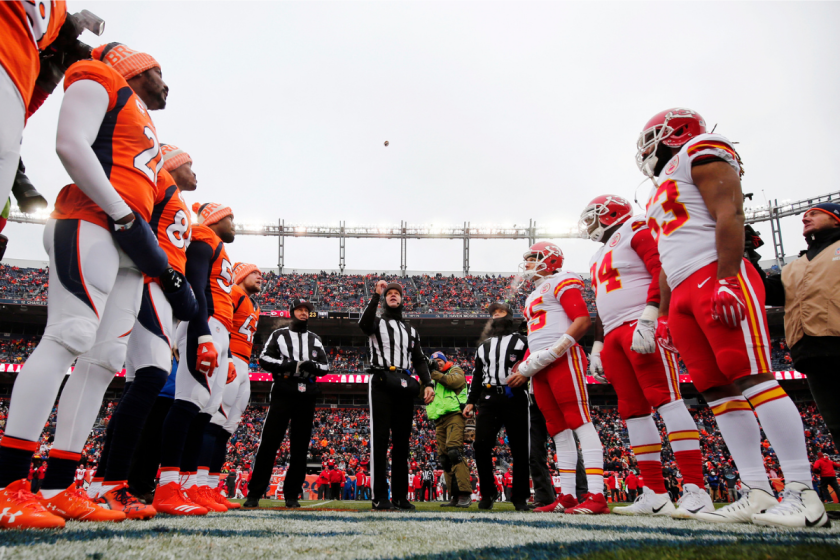Pro Football Hall of Fame personnel man Gil Brandt tells a great story from the opening week of the 1977 season.
Brandt was in the midst of his great career with the Dallas Cowboys and was working with fellow future Hall of Fame executive Tex Schramm. Of the 28 teams in the league in 1977, nine of them scored less than 10 points in the opening week and five were shutout. That week was a harbinger of the lowest-scoring season in post-1970 merger history.
The Monday after those games were played, Schramm walked into Brandt's office, threw the sports section of the newspaper down on Brandt's desk and screamed, "Who's gonna watch that (crap)?"
As you can imagine, the question was rhetorical.
By the following offseason, Schramm was pushing the league to put in a series of rules that changed offensive football and ultimately led to the pass-oriented style of today's game. The point of the story is this: The NFL used to get it. It used to be run by pure football people who understood what the audience really wanted and reacted accordingly.
Why Did the NFL Take So Long to Address Its Overtime Rules?
Related: Roger Goodell's Staggering Net Worth Proves He Could Retire Today
It didn't take 12 years to study something that was obvious. It didn't take 12 years to figure out that what happened between the Buffalo Bills and Kansas City Chiefs in the playoffs last season was a patently unfair thing. After a dramatic performance in regulation, the game went to overtime and ended abruptly when the Chiefs scored a touchdown on the first possession.
The Bills never got to touch the ball on offense. That marked the second time in 12 years that a playoff game ended that way, mirroring the 2010 playoff game between New Orleans and Minnesota. In other words, this was no shock to anyone with any type of common sense.
So, when people celebrate the decision by NFL owners this week to change the rule for playoff games so that each team gets to touch the ball at least once, my reaction is a little different.
What took them so long? This change is more proof that the NFL no longer really gets it. This is no longer some nimble organization reacting to the desire of fans — most of whom wanted the rule changed in 2010 after New Orleans beat Minnesota.
This is the slow and ponderous efforts of a league that has increasingly become less about important stats like YPA (Yards Per Attempt) and more about CYA (Cover Your Ass). The people on the NFL Competition Committee like to use phrases like "unintended consequences" and discuss "relative data points." The league is filled with people who don't want to make a move for fear of being blamed if something goes wrong.
In today's NFL, Schramm, who is one of the greatest innovators in the history of the game, would barely be allowed to open his mouth. This is a league where changing the rule on extra points took years even though the play had been perfunctory for decades. The machine that is the NFL is too big to move nimbly with the approach of simple common sense.
For the second time in 12 years, the NFL had the Super Bowl title impacted by an outdated rule that was really a matter of common sense. When the Chiefs beat the Bills this year on the opening possession of overtime in the playoffs, it wasn't just an unfair situation for the Bills, it was a reminder that this happened before.
The 2010 NFC Championship Game between New Orleans and Minnesota should have been enough for the league to learn its lesson about fairness. The Saints won that game with a field goal in overtime that propelled them to a Super Bowl championship two weeks later in Miami.
Anybody who was watching that game knew that it was completely ludicrous and should have been changed immediately. Instead, the league waited 12 years and let another team get bit in the rear and perhaps let a title slip away before there was a change.
And while there is certainly plenty of room for analysis of rules to understand trends — such as what happens if you tweak the rule on defensive pass interference — this rule about overtime didn't require study.
If you were watching the Chiefs-Bills game in the playoffs, you knew right then and there that this was an unfair outcome. And yes, there are those of you out there crying about how, "You have to play defense, too." No question, but that ignores the fact that the NFL was the only major sport that allowed a team to win without having to play defense.
In baseball, basketball and hockey, teams have to play both offense and defense before a game is decided in overtime or extra innings. Even college football, as absurd as its overtime rules can appear, forces both teams to have to play offense and defense.
For now, this issue has been fixed and that's fine. It's better late than never. At the same time, the NFL faces other issues that make the game tedious, such as the drawn-out replays that constantly slow down games. That issue has been lingering for years, particularly as more and more fans find ways to escape the boredom by looking at their phones rather than at the field.
Here's hoping the NFL finally gets it sooner than later.
